Australia has now fully entered the stage of heat, to the beach summer, has become a choice for many people. But according to the Daily Mail, recently, there was a beautiful-looking thing near the beach that might have killed you. It was jellyfish.
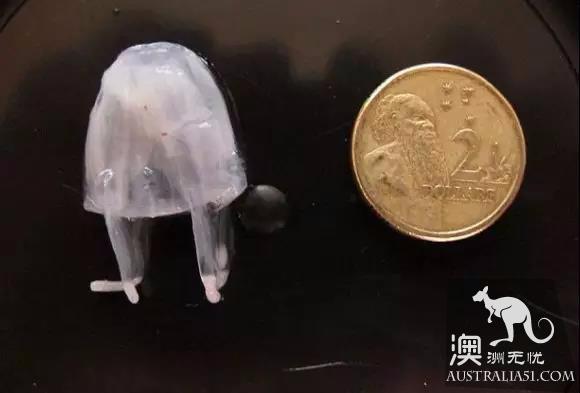
According to the Daily Mail, there are highly toxic Irukandji jellyfish on the coast of Kunzhou, and if stung by the jellyfish, they may even die.
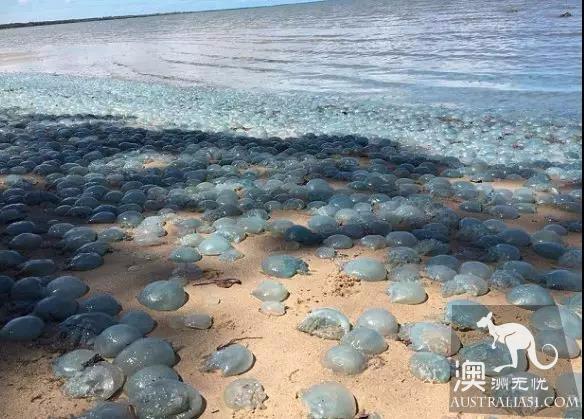
The Cuboid jellyfish was found on Fraser Island by the Queensland Surfer Life Saving Association, (Surf Life Saving Queensland), the Daily Mail reported. Swimmers are warned not to enter the water to avoid being stung and fatal. Experts worry that the jellyfish will now get closer to Sydney.
According to experts, if Irukandji jellyfish stings, he will feel 100 percent of the pain, and the pain will last six to 12 hours. Symptoms are usually accompanied by severe vomiting, nausea, and stomach spasms, which can cause heart problems in about 10% to 15% of patients.
So, when you go to the beach recently, be sure to pay attention to it!
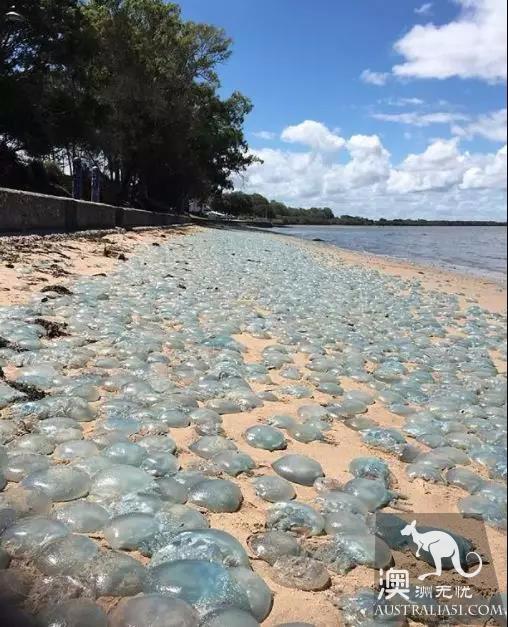
At the beginning of last year, a more terrifying creature, the Blue bottle Monk Hat jellyfish, appeared on Sydney's coast, a situation that had not been seen in nearly a decade, when it was covered with a large number of Blue bottle Monk Hat jellyfish on Sydney's Bondi Beach.
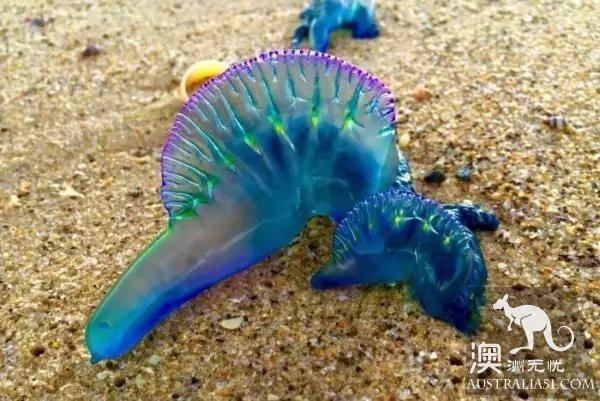
At that time, a large number of blue bottle jellyfish appeared on the northern beach of Byron Bay, and nearly 300 people were stung by jellyfish in a day, forcing the beach to be closed to clean up. The monk-hat jellyfish still looks good at first glance, and it is said that the touch is also good.
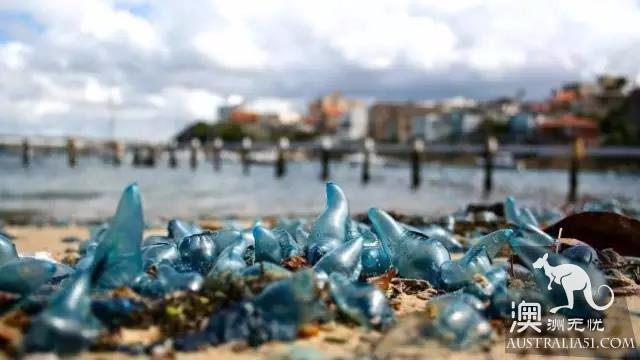
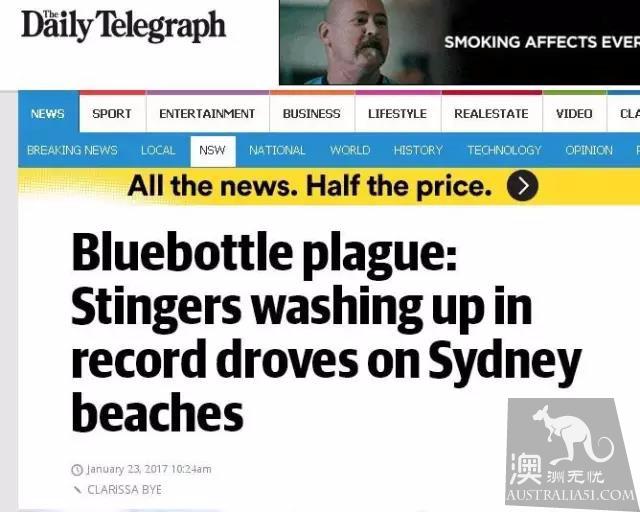
But you may not know it is one of the world's ten most toxic poisons!
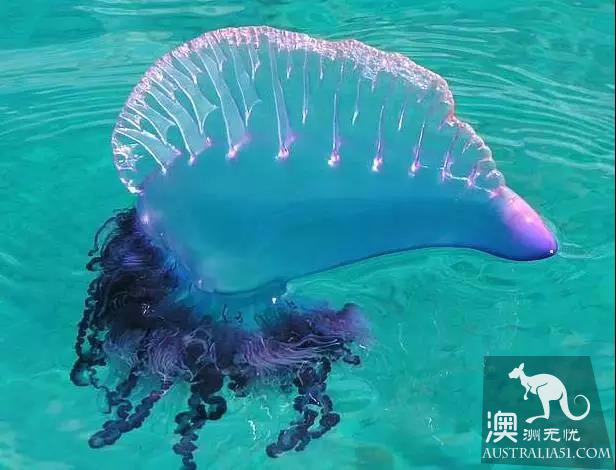
Because it looks like a monk's hat, it is called a monk's hat jellyfish. Its tiny tentacles can be as long as 9 meters long, so it's too late for many swimmers to avoid them when they see the monk-hat jellyfish.
Among the swimmers who were stung by this kind of jellyfish, 68 percent died, 32 percent of the survivors were maimed as a result, and very few lucky children were able to escape from the claws of the jellyfish, and their toxicity was very severe. Any stung victim will have a horrific flogging-like scar that lasts for a long time.
January was the time for a massive outbreak of blue-bottle jellyfish, one of the most common among many marine accidents, the new state emergency agency warned.
Jimmy Keogh, the head of North Coast Surfer Life Saving Services, said strong shore winds had sent a large number of blue bottle jellyfish onto Sydney's beaches, and that too warm water this year made the jellyfish more aggressive.
They may appear on the beach.
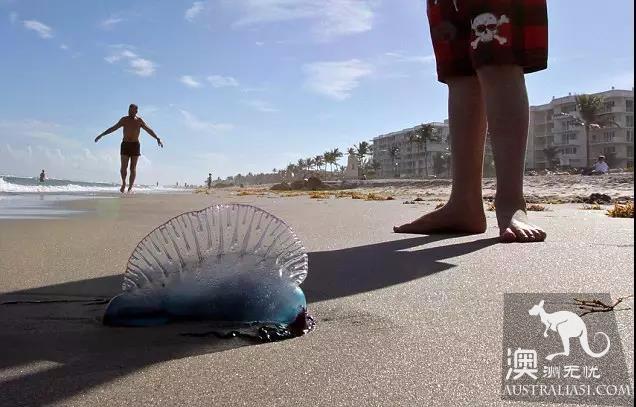
May also appear in the sea where you swim.
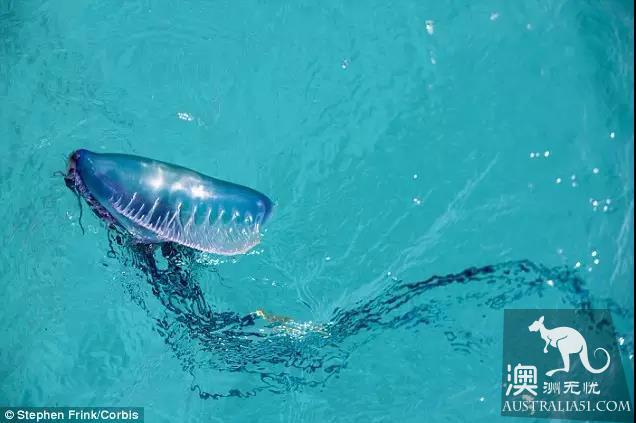
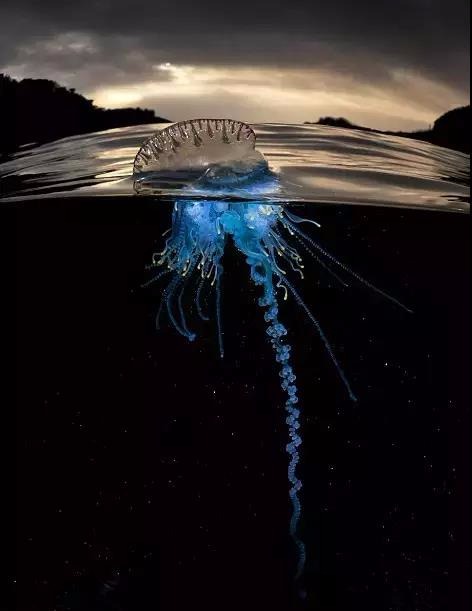
It's pretty, isn't it?
But you must remember! The more bright the creatures are, the more far away they are! Because they tend to be highly toxic creatures!
Matt Burke, a new state emergency worker, said jellyfish stings are not usually fatal, but could be life-threatening if the injuries are in the airway or if they are allergic to jellyfish.
Burke tells you that if you get stung by a jellyfish, the best way is to use hot water. "the water must be hot enough," he said.
What if you get stung?
Generally speaking, immediately after injury, stay away from the water where the monk-hat jellyfish is located and board or land as soon as possible. Then follow the steps:
1, remove any visible tentacles from the skin with clean towels or gloves. Be careful not to handle wounds with empty hands, but also be careful to press the cells further into the skin due to improper handling.
If the eye is injured, rinse the eye with a large amount of water for at least 15 minutes, such as blurred vision or continuous tears after washing, pain, swelling or fear of light, should be handed over to the doctor; If persistent itching or rash occur, use 1% hydrocortisone cream four times a day; if possible, soak the affected area in vinegar to help wash off the prickly cells.
But anyway, if you can go to the hospital, go to the hospital! The hospital is the king! No matter how hot it is, no matter how much you want to get into the water, please take good care of yourself and your family when you go to the seaside.